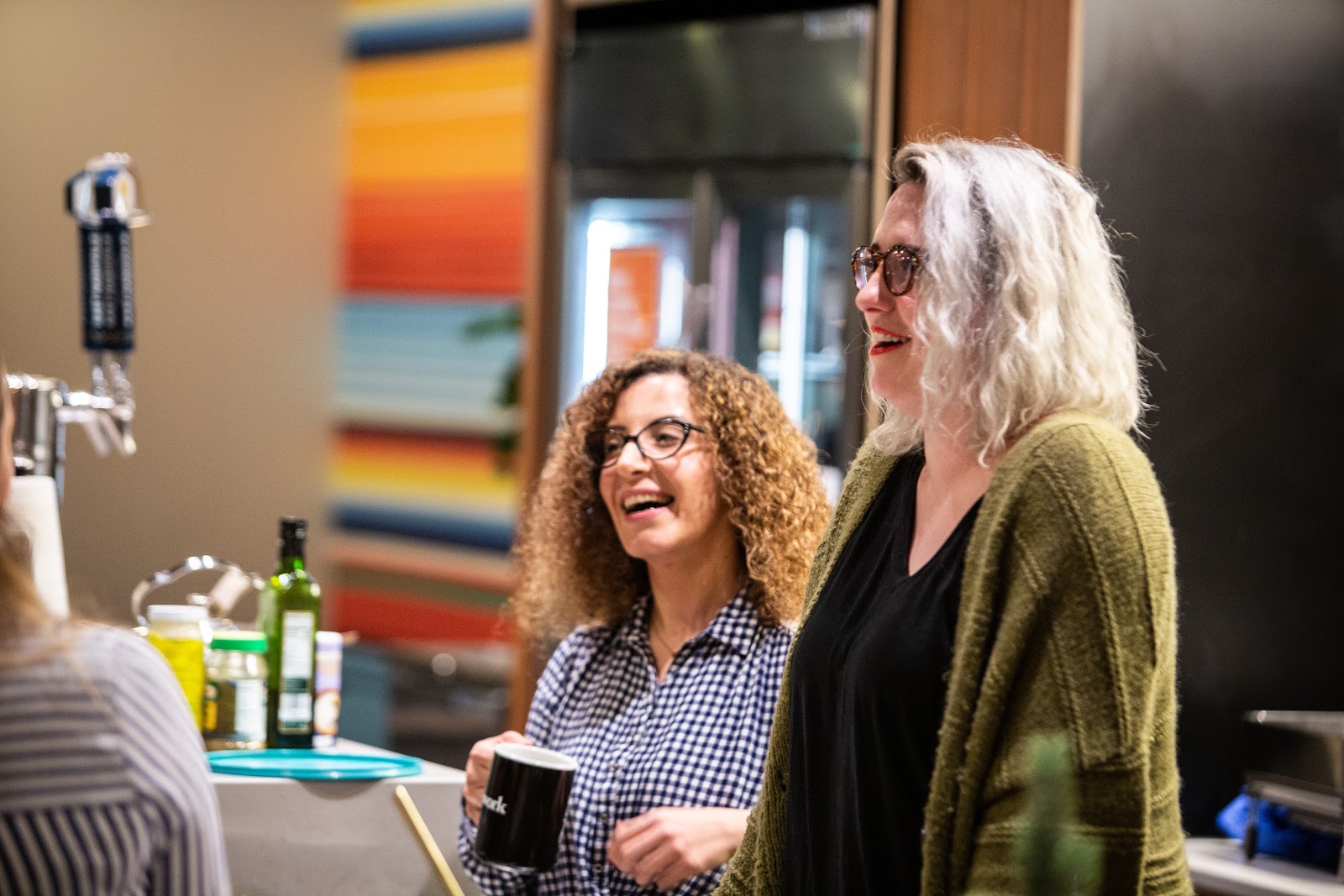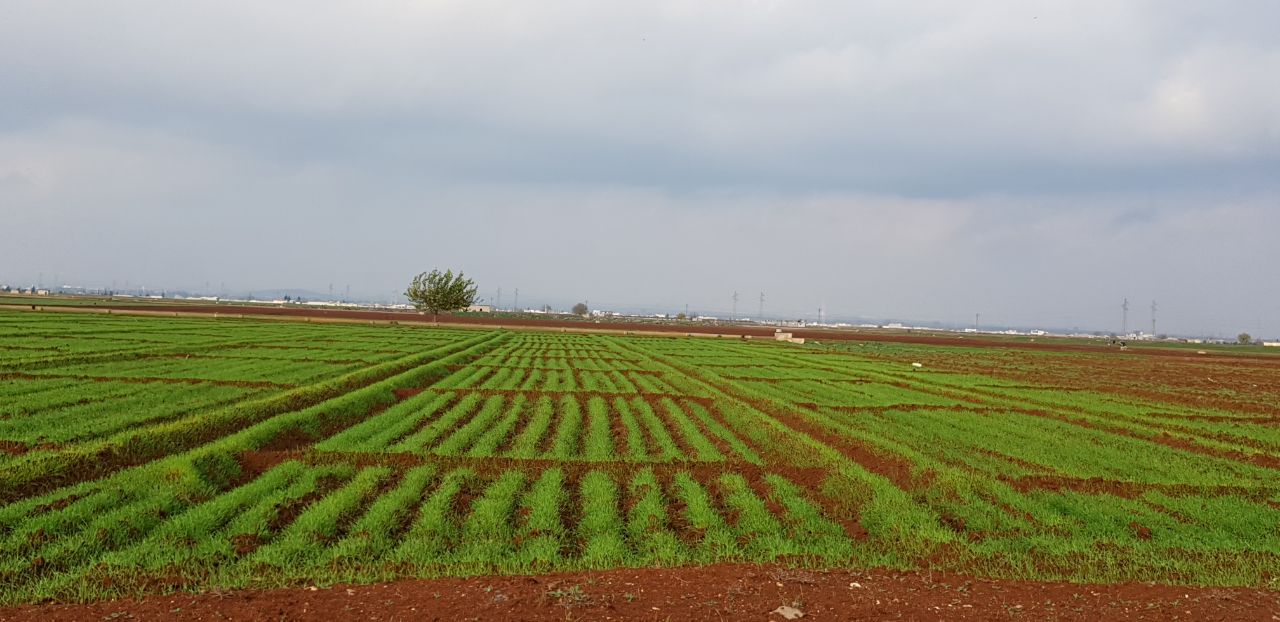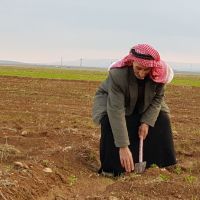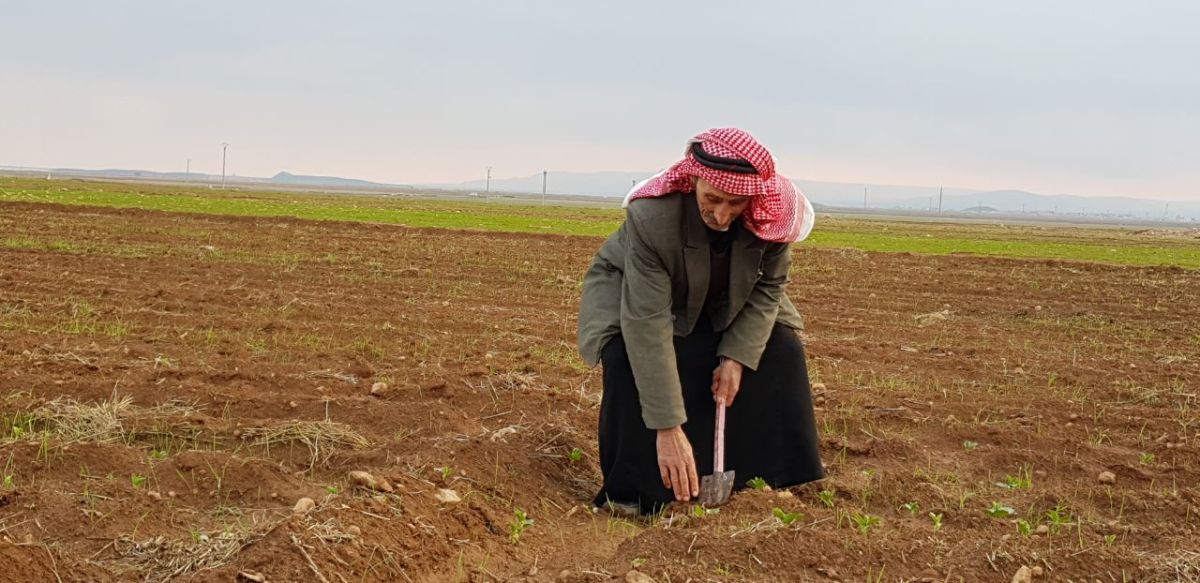When we gathered in Nashville to experience Syrian food, we were all excited to try ful, a Syrian dish often eaten at breakfast. Made with broad beans, ful can be prepared and eaten in many different ways—scooped up with pita, topped with eggs, piled high with cucumbers and tomatoes.
Our friend Audrey Assad, who made the ful, tells us about her father, who was born in Damascus. He grew up on ful, until his mother took the family and fled to Lebanon in the middle of the night. For two years she relentlessly visited a diplomat’s house until she and the family were granted refugee status.
Next to Audrey, Asmaa Ajiel shows us again how to roll grape leaves, her fingers deftly moving. Asmaa fled Syria because of the war and spent four years in Jordan before she and her family were able to move to Nashville.

Asmaa grew up on the food of her mother and her grandmother. Syrian food reminds her of her family, of being together. Her boys have never been to Syria or met their grandmother, but they know their heritage through food, through the ful and hummus and falafel that Asmaa lovingly prepares.
And far away from Nashville, our Syrian friends are finding their heritage again, too.

Assad, pictured above, loves the land. He never left his farm or home in the Aleppo, Syria countryside, not even when ISIS was claiming land and sowing destruction and fear.
 Assad has two sons and eight daughters, a large family he loves and wants to provide for. When ISIS reigned, he was unable to farm. He survived on hot food that was brought out to the countryside.
Assad has two sons and eight daughters, a large family he loves and wants to provide for. When ISIS reigned, he was unable to farm. He survived on hot food that was brought out to the countryside.
With your help, Assad is farming again today, planting barley and broad beans in his fields. When the first tractor plowed his land again Assad cried tears of joy. He tends to his fields, to the tender shoots of growth, like newborn children.
Just like Assad, his farming is entrenched in community. The local children helped build small channels in the fields so that when they were irrigated the seeds wouldn’t be washed away. The barley Assad grows is used as animal feed for local flocks of sheep. The broad beans are used to make the ful that nourishes Assad’s family and community. The same kind of beans that were used to make the ful we enjoyed half a world away.

The broad bean, the seed—they’re replanting families, allowing them to thrive and grow at home again. To reclaim their identities as farmers, as providers.
It goes beyond a field and a harvest. It’s food for livestock, it’s work for families to do together. It’s income and food, stability and rootedness.
And it’s rebuilding a heritage, creating connections through generations and miles. It’s allowing Syrian refugees to find their way back home, whether in Nashville or in Aleppo.


